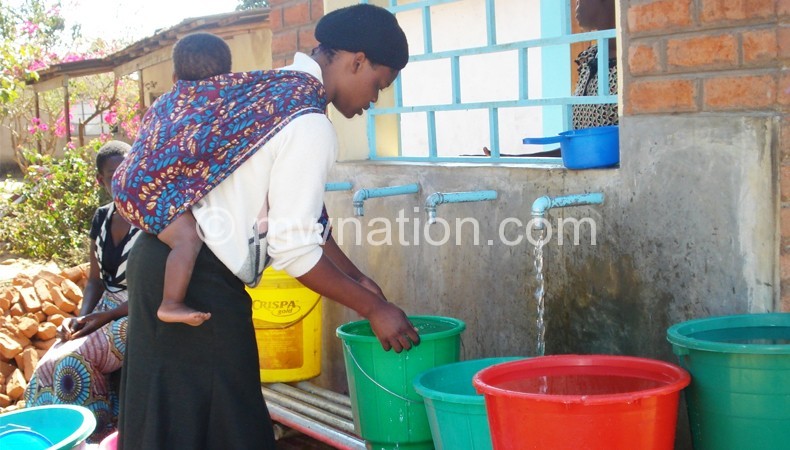Water boards eye tariff hike
The country’s five water boards are pushing for a tariff hike of between 15 and 40 percent from April 1 2023, but Minister of Water and Sanitation Abida Mia says the cholera situation will inform decisions.
Representatives of the five water boards, at the invitation of the Ministry of Water and Sanitation, met the Parliamentary Committee on Natural Resources on Saturday in Mponela, Dowa where they outlined the challenges they are facing to meet demand.

In an interview yesterday, committee chairperson Welani Chilenga confirmed the meeting and said failure by the boards to increase the tariffs will worsen their situation because even with the increment, they will still be operating at a loss.
He said water boards need to raise the tariffs now to meet operational costs and offer improved services to Malawians.
The five water boards are Northern Region Water Board (NRWB), Central Region Water Board (CRWB), Lilongwe Water Board (LWB), Blantyre Water Board (BWB) and Southern Region Water Board (SRWB).
Said Chilenga: “We met them on Saturday and we agreed with their recommendation that by April 1 [2023], when the new financial year will start being implemented, this should be implemented.
“ In fact , with the 25 percent devaluation of the kwacha [in May 2022], their recommendations are even long overdue. Delaying further with the water tariff increment would not help matters as water boards services are being affected.”
He said BWB and CRWB have proposed an average of 40 percent while SRWB is proposing 35 percent. On the other hand, LWB is asking for an average of 25 percent and NRWB is asking for an average of 15 percent.
But Mia put her foot down in an interview yesterday, insisting the tariff increment can only be effected when the cholera situation eases.
She said: “With the cholera situation, there is no way we can increase the price of water because people are struggling, they need water. It is life.
“As long as there is cholera and people are struggling for water, there is no way we can increase the tariffs.”
Cholera has so far affected all 28 districts, killing over 825 people and infecting 24 884 nationwide.
Mia said she was aware of the meeting, but said President Lazarus Chakwera will not allow a water tariff adjustment in the midst of a cholera crisis.
However, Chilenga insisted that the argument by government that the increment will affect the cholera fight was wanting, as they need money to expand to areas where people are yet to start accessing clean and potable water which can only be done with money.
He said even with the proposed tariffs, water boards will not be able to recover operational costs, as they will still be running at a loss.
“The implementation date is April 1, and if these new figures are not implemented, the boards will eventually close shop and the cholera situation will worsen,” Chilenga said.
Water Users Association of Malawi executive secretary Shadreck Kalitera could not be reached for comment. However, in an earlier interview, he said utility providers continue to operate in dire straits.
He said: “The current tariff is below full cost recovery. And worse still, the water boards are heavily owed by the ministries, departments and agencies [MDAs].
“There is a need for cost recovery tariffs. This will enable water boards to meet the operation and maintenance costs, service debt and renew its assets.”
Besides huge unpaid water bills by MDAs that hovered around K23 billion last year, water boards also lose K30 billion annually to non-revenue water, have huge electricity bills but also face increasing cost of production.
But Mia said the government is looking at ways of recovering such debts to ease operational pressure.
According to Section 35 of the Water Works Act (1995), a board shall make water charges as are approved, within a reasonable time, by the minister for the supply of quantities of water measured by meter, for the rental of meters, or for the provision of other services.





